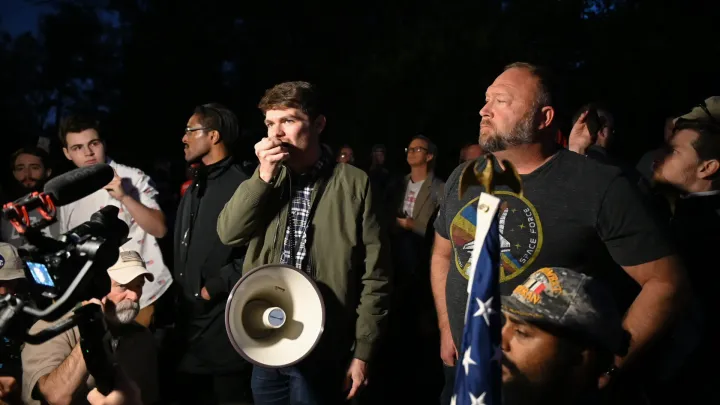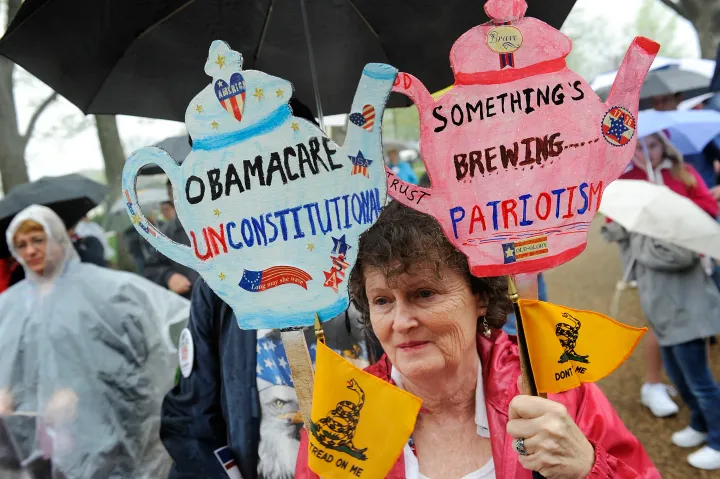How the war on expertise hollowed out public service and rewired the political brain.
At a recent Senate hearing, Homeland Security Secretary Kristi Noem was asked to define habeas corpus. Her answer: It is a constitutional power the president has to deport people. Of course, habeas corpus is nothing of the sort. It is the right of individuals to challenge unlawful detention, a principle woven deep into the fabric of Anglo-American liberty. And here was a high-ranking official, charged with overseeing the security of the nation, "misunderstanding" a foundational safeguard. It's easy to mock. Harder, perhaps, to consider what this moment says about the institutions that have been built, and what they're now willing to tolerate.
The knowledge infrastructure that used to anchor American governance is fraying. Once, there was at least a tacit assumption that public servants would prepare themselves for public service; that expertise and familiarity with the Constitution weren't luxuries, but requirements. Somewhere along the way, that changed.
In the Trump era, ignorance is no longer a liability. It has become the point. The president's relationship to information was never instrumental - it was theatrical. He invoked facts as props in a performance, not as building blocks for argument. If a statistic confirmed his instinct, it was useful. If it didn't, it was discarded.
There's something compelling about this ethos. It appeals to people weary of being talked down to. It flatters a long-standing suspicion many Americans feel toward intellectual elites. It says: you know better than the experts. Trust your gut. Don't let the credentialed class condescend to you. But the cost of that posture is steep. Once you decide that learning is a form of elitism, you have difficulty distinguishing between honest inquiry and performative confidence.
Trump's first cabinet often reflected this ethos. Betsy DeVos, with no background in public education, was tasked with leading the Department of Education. Ben Carson, a man of great accomplishment in medicine but none in housing, led HUD. This wasn't sabotage. It was ideology. A belief that the so-called deep state needed not reform but removal. Government wasn't to be improved, but hollowed out.
The result is a generation of leaders for whom institutional memory means little and civic tradition even less. Consider climate policy. The dismantling of environmental protections wasn't born of alternative science—it stemmed from a refusal to engage science at all. During the COVID-19 pandemic, the rhetoric of personal freedom overwhelmed the language of public responsibility. And behind the slogans were decisions—real ones, with real consequences.
What's striking is how little this matters in the political imagination of Trumpworld. There, credibility comes not from knowledge but from certainty. To hesitate is to lose authority. To reflect is to appear weak. That leaves little room for humility—the kind that governance demands.
Habeas corpus, once again, is not obscure. It is the line between a government that must justify its actions and one that acts without justification. To mistake it for a tool of executive deportation is not simply a factual error. It is a symptom. Of what? A deeper indifference to the legal architecture that keeps democracy from curdling into authoritarianism.
The civic habits that sustain liberal democracy are subtle. They involve listening, deliberating, and sometimes even admitting error. They require a certain discipline and a willingness to submit one's instincts to scrutiny. When public figures mistake performative strength for real understanding, that discipline atrophies. And over time, the public begins to forget what thoughtful leadership looks like.
We live in a time of epistemic fragility. Our institutions, strained by cynicism and overwhelmed by information, are struggling to assert their authority. When leaders signal that facts are flexible and knowledge is negotiable, they erode public trust. And they teach citizens to do the same.
We shouldn't be surprised. Political movements reflect the culture that births them. In a society where speed trumps depth, and outrage travels faster than context, the temptation to trade knowledge for volume is strong. But if our politics is to regain its footing, we'll need to recover something older, quieter, and harder: a reverence for truth, not as an instrument of power, but as a common good.
There's no shame in not knowing something. The shame lies in refusing to learn and doubling down on error because the audience rewards the defiance. That's the ethos that has taken hold.
The crisis we face - not only in America but worldwide - isn't a knowledge gap. It's a moral gap. A deficit of virtue. And the only remedy for that is cultural, not political.
The Index is a reader-supported, indie publication.
Now, more than ever, the world needs an independent press that is unencumbered by commercial conflicts and undue influence.
By taking out an optional founding membership, you can help us build a free, accessible, independent news platform firewalled from corporate interests.



